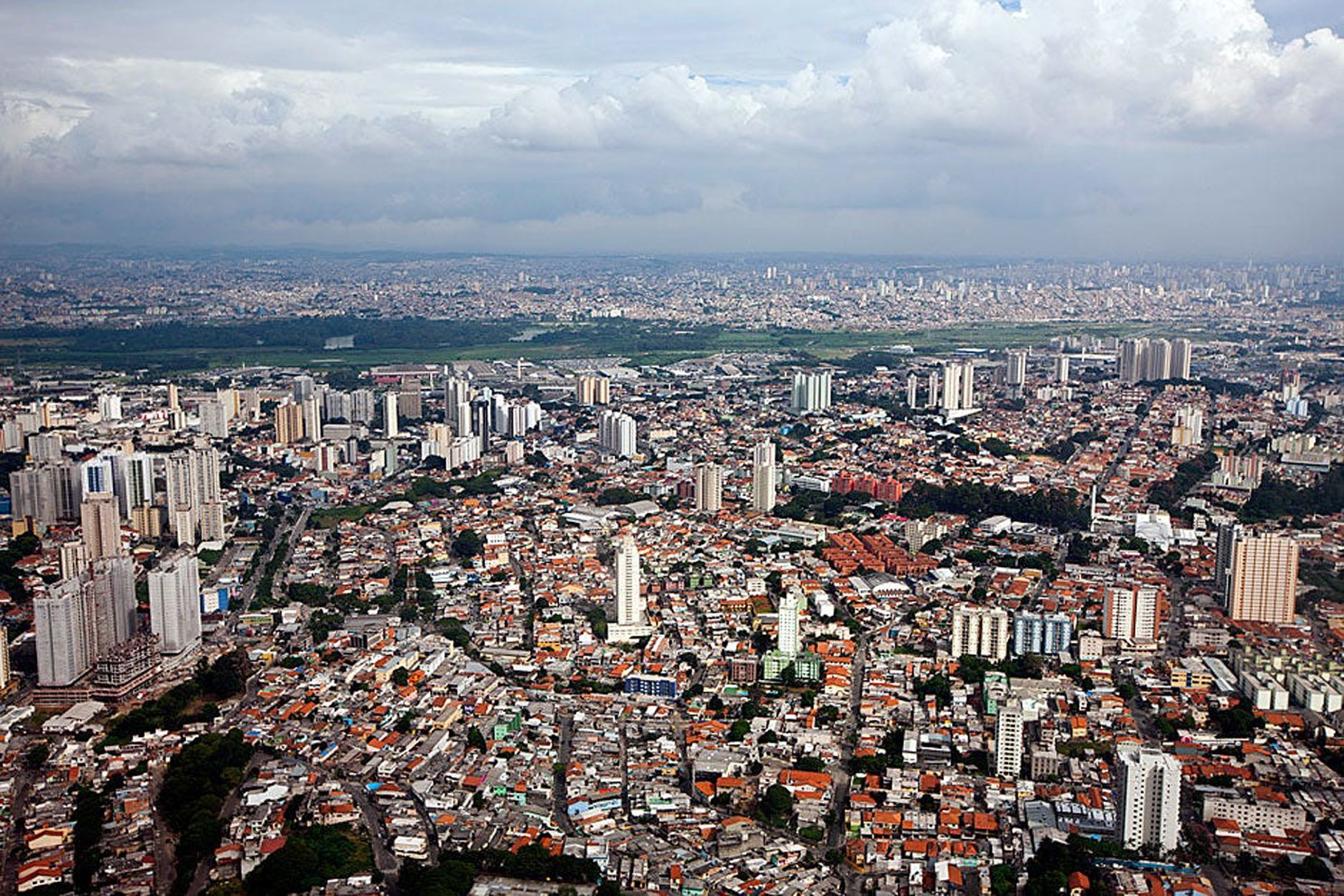2022 Lemann Brazil Research Fund awardees announced

Aerial view of São Paulo, Brazil. Kris Snibbe/Harvard file photo
The Office of the Vice Provost for Research and the Office of the Vice Provost for International Affairs are pleased to announce the results of the 2022 competition for awards from the Lemann Brazil Research Fund.
“We were once again delighted by the caliber of interested applicants in this invaluable opportunity,” said Vice Provost for International Affairs and Mark Schwartz Professor of Chinese and Inner Asian History Mark Elliott. In his inaugural semester as vice provost for research, 25-year-faculty member John Shaw, Harry C. Dudley Professor of Structural and Economic Geology and professor of environmental science and engineering said, “I am deeply honored to join Mark Elliott in overseeing this successful and pivotal program for international research. I look forward to continuing to engage with our generous donors and our faculty community in augmenting Harvard’s research collaborations in Brazil.”
Established in 2016 by a generous gift from the Lemann Foundation, the Lemann Brazil Research Fund supports Brazil-related research in all areas related to education, as well as research in any other disciplinary area undertaken with a Brazilian colleague.
This year’s awarded projects are:
“Assessing the prospective role of ultra-processed foods on adiposity-related outcomes in Brazil”
by Xuehong Zhang, assistant professor of Medicine at the Harvard T. H. Chan School of Public Health, with co-investigators Renata Bertazzi Levy, University of São Paulo; Carlos A. Monteiro, University of São Paulo; Edward Giovannucci, Harvard T. H. Chan School of Public Health; Leandro F. M. Rezende, Federal University of São Paulo; Maria Laura da Costa Louzada, University of São Paulo; and Maria Alvim Leite, University of São Paulo.
“Building a Fabrication Laboratory (FabLab) to democratize science and education in Brazil”
by Venkatesh Murthy, Raymond Leo Erikson Life Sciences Professor of Molecular and Cellular Biology in the Harvard Faculty of Arts and Sciences, with collaborators Grace S. Pereira Moraes, Universidad Federal de Minas Gerais, and Márcio F. D. Moraes, Universidade Federal de Minas Gerais.
“Building the evidence base for patient-centered Long COVID healthcare administration and policy: A mixed methods study of needs, barriers, and opportunities in Rio de Janeiro”
by Meredith Rosenthal, C. Boyden Gray Professor of Health Economics and Policy at the Harvard T. H. Chan School of Public Health, with co-investigators Emma-Louise Aveling, Harvard T. H. Chan School of Public Health; Margareth C. Portela, National School of Public Health, Fundação Oswaldo Cruz; Flora Cornish, London School of Economics & Political Science; Claudia Cristina de Aguiar Pereira, National School of Public Health, Fundação Oswaldo Cruz; Mônica Silva Martins, National School of Public Health, Fundação Oswaldo Cruz; and Sheyla Maria Lemos Lima, National School of Public Health, Fundação Oswaldo Cruz.
“SEL Kernels for Local Needs in Amazonas Region of Brazil”
by Stephanie Jones, professor of education at the Harvard Graduate School of Education, with collaborators Rita Esther Ferreira de Luna, Universidade Federal do Amazonas, and Ana Luiza Raggio Colagrossi, Sedes Sapientiae Institute.
“Unlocking Data to Improve Decision-Making”
by Asim Khwaja, Sumitomo-FASID Professor of International Finance and Development at the Harvard Kennedy School, with co-investigators Marcia Castro, Harvard T. H. Chan School of Public Health; José Macedo, Federal University of Ceará; and Marcia Marchado, Federal University of Ceará.
“Using museum specimens and genomics to reconstruct the path to endangerment of Brazil’s rarest birds”
by Scott Edwards, professor of organismic and evolutionary biology in the Harvard Faculty of Arts and Sciences, with co-investigators Fabio Raposo do Amaral, Federal University of São Paulo), and Luís Fábio Silveira, Zoology Museum, Federal University of São Paulo.




